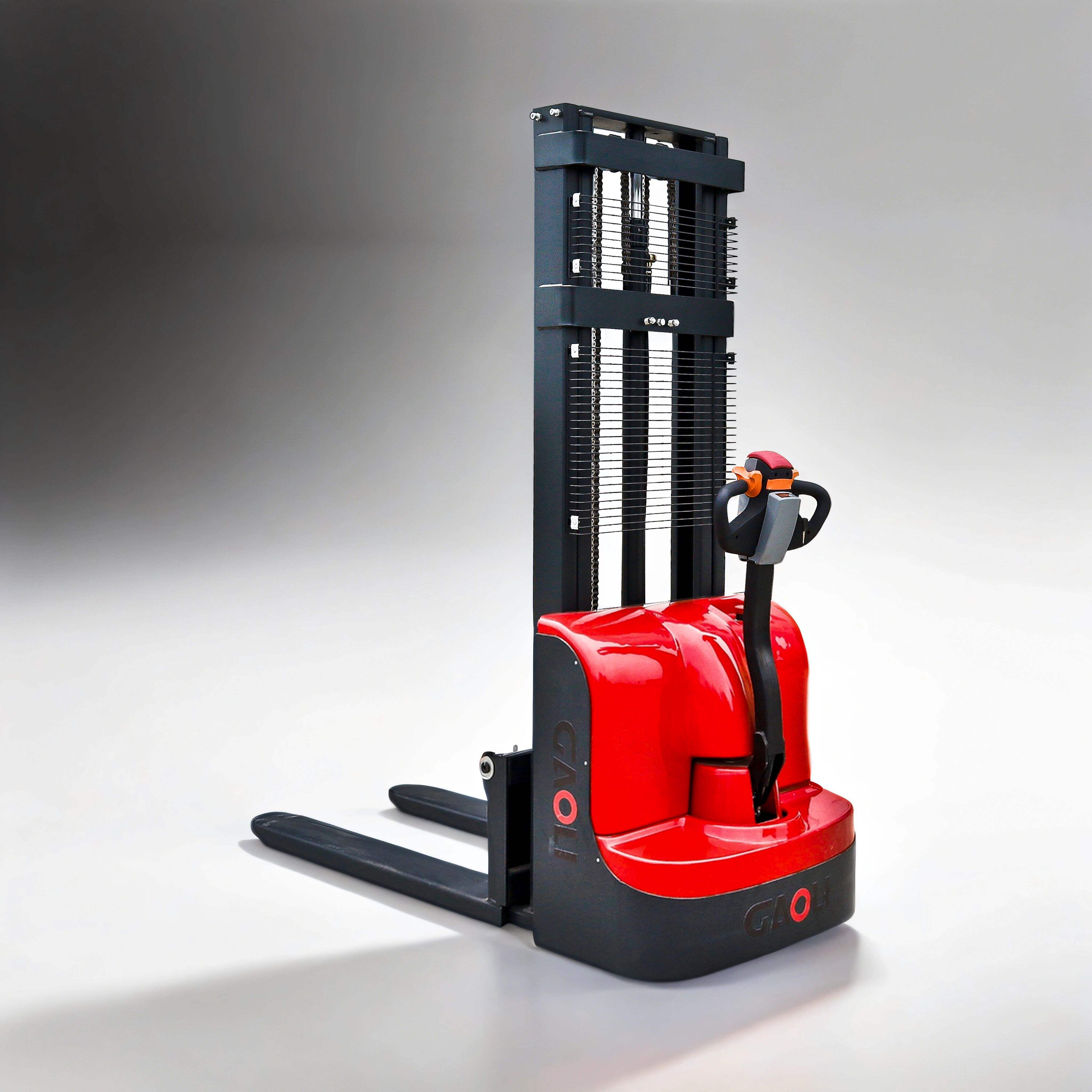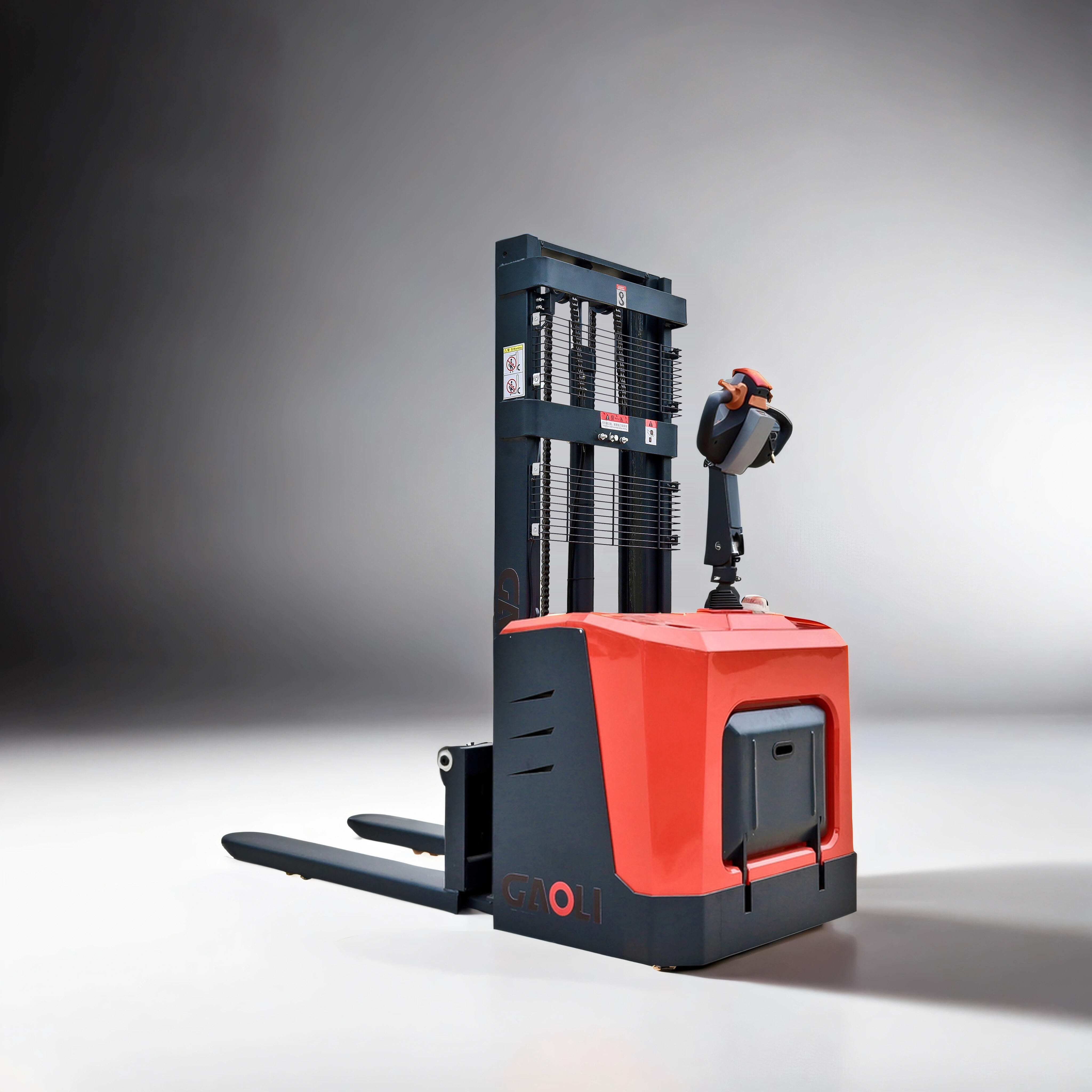Why Capacity Matters in Electric Pallet Trucks
Preventing Mechanical Strain and Ensuring Safety
The load capacity of an electric truck is important for avoiding any mechanical stress and secures stability. Overloading pallet jacks beyond their weight limits creates excessive mechanical stress. Sustained overloading has been identified as the cause of mechanical failures and a cause of accelerated wear that is considerably less than the useful life of these vehicles. Information on equipment failures indicates a positive relationship between improper load capacities and longevity of units. Following safety guidelines established by organizations such as the Occupational Safety and Health Administration (OSHA) reinforces the need to match load capacity to safety considerations as a means to minimize liability, uphold equipment integrity, and facilitate safe operation.
Avoiding Costly Breakdowns and Maintenance
Proper Capacity: Choose the right capacity, and you will reduce the amount of maintenance you have to deal with — not to mention its cost! It is estimated that selecting the wrong size can increase your maintenance costs by 30%. There are also many anecdotal cases that demonstrate that firms operating outside this efficiency frontier can experience costly breakdowns, emphasising the financial effect. The right capacity is necessary to prevent degradation of the truck parts, saving it from frequent breakdowns and ensuring longer life in functioning. Also, by using manufacturer warranties and support for example within prescribed load limits, companies are saving money on costly repairs or new purchases, also following a strategic cost-management approach.
Capacity as a Foundation for Operational Efficiency
Reasonable carrying-capacity conditions are the basis of improvement of work efficiency for electric pallet trucks. The efficiency of being able to load and unload, pick and pack, and depot to depot has truly streamlined our operational efficiencies and is simply a key part of our competitive advantage. Performance indicators like turn-around-times, and throughput-rates display efficiency improvements from matching pallet truck capacity to operational requirements. Capacity utilization is a productivity-enhancing factor that has a direct impact on how smooth are workflow processes, and on how downtime is minimized to allow Assignments to flow as fast as possible. Optimization of logistics Inefficient load handling leads to operational outcomes that are not optimal (eg, higher manifested cost with load promotion).
Consequences of Underestimating Capacity Needs
Premature Wear and Component Failures
Specifying inadequate capacity may cause wear and critical failures of your electric pallet truck. This generally results in less life of the equipment. It has been demonstrated in research studies on mechanical issues of grassroots irrigation that a direct correlation exists between underutilization by the end user and mechanical issues such as breakdown and inefficiency. For instance, continuously overloading a pallet truck beyond its capacity will place abnormal strain on the hydraulic system and wheels, resulting in recurring breakdowns. After all, purchasing pallets with the wrong load bearing capacity is expensive to replace and repair; so, accurate capacity planning is key.
Increased Maintenance Costs and Downtime
The use of inadequate capacity level electric pallet trucks can lead to much higher maintenance costs and downtime—often up to 30 percent. Real-world examples show that companies making mistakes with their capacity requirements suffer increased downtime with associated impact on their business performance. This lost time disrupts work and service, which, in turn, calls for more frequent repairs and service, resulting in higher maintenance costs. With intelligent capacity management, companies can reduce unplanned maintenance and downtime—saving time and resources. Utilizing the correct capacity help to ensure performance levels are maintained and minimize unexpected interruptions.
Safety Risks from Overloading Pallet Trucks
Safety Overloading pallet trucks can create many safety issues and potentially cause multiple industrial accidents and injuries. The numbers are scary when it comes to workplace accidents caused by exceeding load limits. When it comes to electric pallet trucks, it is very important to follow legal load limits in order to keep your workplace safe. This commitment to safety points to the importance of training staff well so that they can uphold capacity restrictions. With the prevention of overload situations through operator awareness, companies can promote a safer asset environment and less accident with equipment.
Capacity's Direct Impact on Operational Efficiency
Reducing Transport Cycles Through Right-Sizing
Choosing the right capacity pallet truck is a key factor in reducing handling times and transport cycles in warehouses. Following are among the benefits: Right-sizing of capacity helps in ensuring that businesses’ pallet trucks carry an optimal weight load, in that they do not need to make as many trips to move goods effectively. For example, when warehouses designing with optimised capacity strategies, they find the handling time significantly reduced because of which the transport cycles are also reduced significantly. This approach also allows operators to concentrate on other important tasks by discretely orchestrating the load, improving operational metrics related to transport efficiency.
Throughput Improvements in Warehouse Operations
The speed at which a system can handle goods or tasks--a measure known as throughput--depends heavily on the right sizing of pallet truck capacity to workflow requirements. Industry leading cases demonstrate the success of matching capacity with work requirements to increase warehouse throughput. Prosperous enterprises such as Amazon have declared notable throughput improvements after optimising their storage systems towards pallet truck capacity planning. According to performance metrics, perfect capacity planning can lead to smoother operations and better warehouse efficiency, thereby demonstrating a pivotal role of capacity alignment for operational excellence.
Energy Savings with Proper Capacity Matching
While the matching of capacities is truly optimal on the one hand, the saving effect in terms of both money and the environment as a whole cannot be overestimated. Interestingly, the energy consumed by pallet trucks at incorrect capacity is found to be very different, suggesting the necessity of accurately matching the capacity. Sustainable measures as in the case of current warehouses underline the importance of energy efficiency & capacity matching helping to cut down the electricity consumption thereby making a significant contribution in the reduction of the operational expenses. Making energy efficiencies a priority with right-sized capabilities helps businesses strengthen their resolve for fiscal and ecological conservation within warehousing operations.
High-Capacity Electric Pallet Trucks for Demanding Applications
Industries That Require Heavy-Duty Solutions
When it comes to tough applications, such as manufacturing, construction or logistics, sturdy machinery is required such as a 3000 kg electric pallet truck. Particularly, in industry, the requirement to efficiently deal with large raw material and product store requires solutions of this type. Companies providing logistics services, however, can derive value from these trucks by optimizing activities in high-throughput warehouses. Market evidence Market evidence confirms this trend and it is clearly influenced by a big interest for high-capacity pallet trucks, due to the necessity to reach ambitious productivity levels into…these environments.
Features of Commercial-Grade High-Capacity Models
High-capacity electric pallet trucks used in commercial enterprise are different than standard models, they are loaded with advanced functionality and ruggedness. It features strong power system, high torque electric motor, excellent control feeling even the wind is greater than a hurricane. This is also why lithium-ion batteries are used so that you have more operating time and less charging time. The development is led by manufacturers such as Toyota and Crown, whose high-capacity models are their best-selling for their reliability and new technology.
Lithium-Ion Advancements in High-Capacity Trucks
The addition of lithium-ion technology to high-capacity electric pallet trucks has already transformed the performance of warehouses in terms of productivity and operating time. Manufacturers that transitioned from conventional batteries to lithium-ion technology have seen an increase in performance metrics and an extended battery life. For example, one logistics company reportedly experienced a 20% improvement in operational efficiency after the upgrade, along with significant decreases in downtime. The ROI (cost/benefit analysis) between investing in lithium-ion technology is clear in terms of long-term savings and improved long-term environment sustainability, which makes it an excellent solution for companies that are looking to maximize the utilization of their high capacity requirements.
Safety Compliance Through Proper Capacity Selection
Regulatory Standards for Load Handling
We need to take all measures to keep our operations in compliance with regulations, do keep an eye on workplace safety and run the risk of coming under legal action. OSHA (Occupational Safety and Health Administration) and ANSI (American National Standards Institute) make clear certain protocols in load handling for electric pallet trucks. Compliance is critical as any breach of these policies can result in heavy penalties such as fines and business stoppages. For example, one high-profile case involved a logistics company that was fined for having a serious accident brought about by overloading that resulted in conditions that violated OSHA standards.

Capacity-Load Matching for Accident Prevention
Warehousing accident prevention largely relies on the capacity-load matching strategy. Prudent capacity utilization reduces the potential for accidents, as safety organization data indicates that incident rates are lower in situations where effective load matching has taken place. For instance, a National Safety Council study found that warehouses with strong capacity-load matching programs saw 30 percent fewer annual accidents. These results highlight the need for interventions to train employees about how to match capabilities for lifting tasks, and the potential impact on workplace safety.
Documentation and Training Requirements
Compliance with capacity-based safety standards entails documentation and solid training programs that can be time-consuming to take, upload, and track. This is to provide verification that various safety protocols are being followed, and it will assist in the event of any audits or inspections. In addition the operators need if possible training in how much the systems can take and this is essential for the people who are operating machines to ensure preventative measures for a safe operation. “If my training and capacity screening is based on high quality, then my safety record improves and that’s exactly what’s happening with leading companies today.” Such initiatives do not only inform but empower employees so they know and use the rules each and every day at work, making the workplace safer for everyone.
FAQ
What is the importance of capacity in electric pallet trucks?
Capacity is crucial in preventing mechanical strain, avoiding costly breakdowns, enhancing operational efficiency, and ensuring safety. Correct capacity utilization prevents unnecessary stress on equipment, optimizing operational lifespan and reducing maintenance costs.
How does improper capacity selection affect maintenance costs?
Improper capacity selection can increase maintenance costs by up to 30% due to additional wear and tear on the components, leading to more frequent repairs and breakdowns.
What are the consequences of underestimating capacity needs in pallet trucks?
Underestimating capacity needs can lead to premature wear, component failures, increased maintenance costs, downtime, and safety risks from overloading, ultimately affecting overall business performance.
How can right-sizing capacity improve operational efficiency?
Right-sizing capacity reduces handling times and transport cycles, enhancing throughput and energy savings, leading to improved warehouse operations and operational excellence.
Why are high-capacity electric pallet trucks essential for some industries?
Industries like manufacturing, construction, and logistics require high-capacity trucks to handle bulky loads and meet aggressive productivity targets efficiently.


